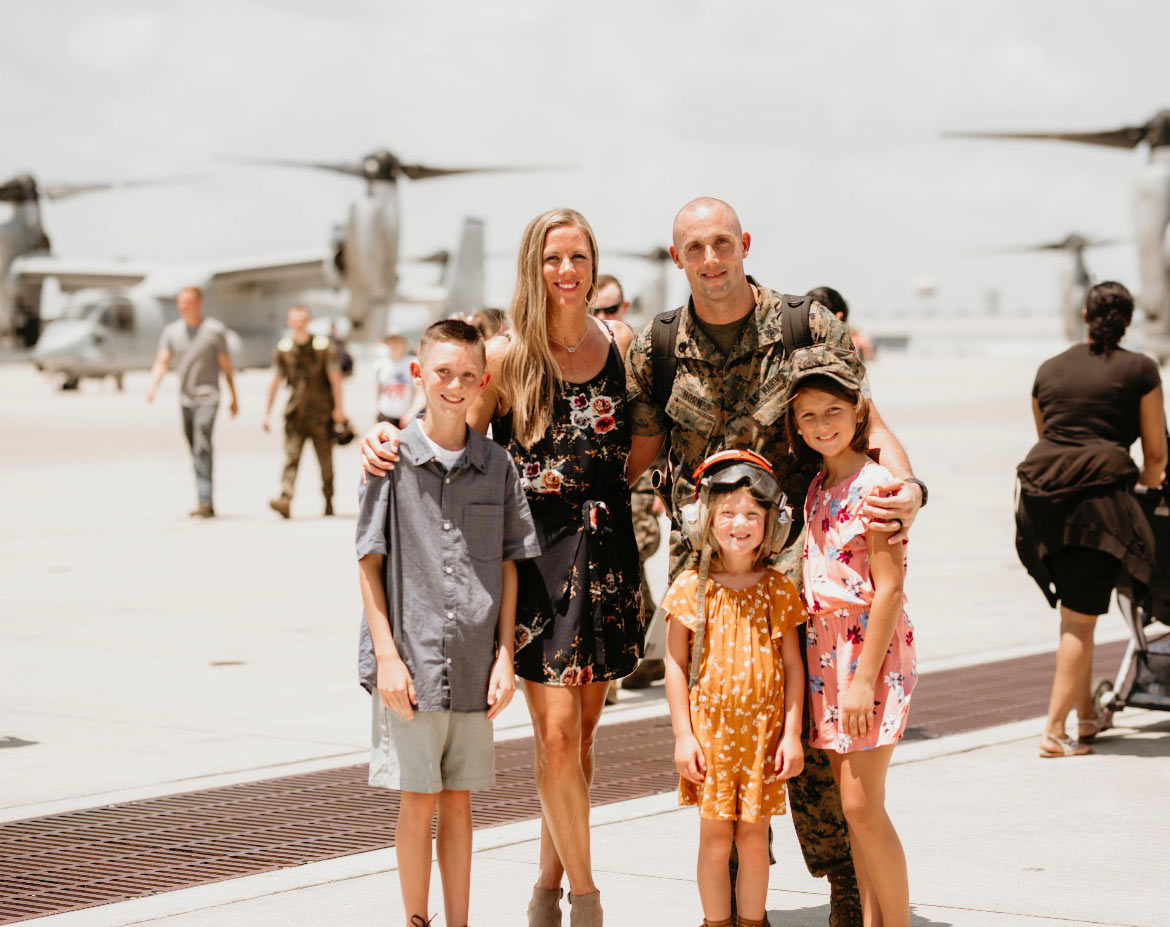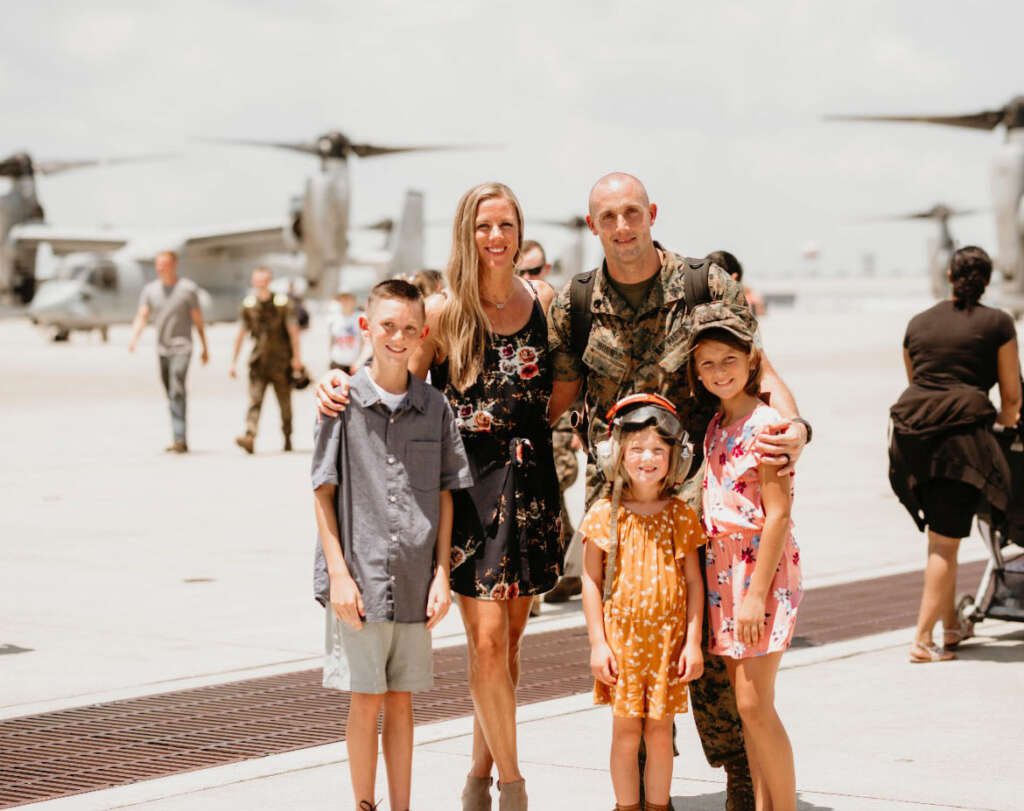by Jordan DeWald
The tragic events of September 11 forever changed Jason Horn. He was a senior in high school in Crowley, Texas. At the time college did not appeal to him but immediately joining the workforce wasn’t what he wanted to do either. He had been a successful athlete and teamwork was his forte. He was raised to have a strong work ethic, to be disciplined and respectful. He was shaped to be a Marine so in 2003 he went to a recruiter and in January of 2004 he shipped out for recruit training in the United States Marine Corps.
That started a career that has lasted for more than seventeen years. After graduating from recruit training, he went to Pensacola, Florida where he studied aviation ordnance training. In September of 2004, he was stationed at the Air Station on Camp Pendleton in California as a member of the Purple Foxes. He was deployed twice to Iraq. As an Aviation Ordnance Technician, he had the work of casualty evacuation. He worked alongside Navy corpsmen with the goal of making sure anyone they recovered, no matter what side they were on, saw their family again. In the other deployment, he provided support to ground units. His role was to make sure the weapons worked properly, as well as making sure the countermeasures worked as they should. As a part of their training to prepare them for deployments, older Marines would mentor the younger Marines. They’d share from their experiences what the younger Marine should expect and how to process and navigate the hard scenarios they would encounter. When the younger Marine had someone new come in, they’d then take on the mentor role.
Horn reenlisted after his second deployment, which brought him back to Fort Worth in non-deployment reserve duty. He was then stationed in Okinawa, Japan as a part of C-130 division – The Sumos. He was deployed twice to Afghanistan during that time. Returning from the second deployment, he went to drill instructor school in South Carolina. He graduated in December of 2013 and started his drill instructor career in South Carolina and that is where he found his calling as an instructor, teacher, and mentor. His next orders took him to Camp Lejeune in North Carolina, where he was in the Black Knights, and he was deployed again. He then requested instructor billet at Camp Pendleton, which is what he is doing now as a Gunnery Sergeant.
Horn is married, with a son and two daughters. He plans to retire in three years and is pursuing a bachelor’s degree. While higher education wasn’t a priority for him as a teenager, Horn has seen the value that more education can bring. He describes learning the difference someone can do with more education – “the more you know, the more you can pass on.” This is why he plans to teach after retirement and graduation. The calling that he recognized through being a drill instructor led him in this direction. His ultimate goal would be to be able to teach in an alternative school setting, believing that everyone deserves a second chance. He thinks his experiences have given him a lot to offer to young adults and wants to relate those experiences to their life. Horn would also like to teach leadership and ethics courses to teachers, helping them to know how to reach out to troubled kids.
The USMC took the best of who Jason was, an athletic kid with a strong upbringing with values, and taught him the processes needed to be successful. He says most Marines are already shaped to be one when they start. If they aren’t, they don’t make it as a Marine. Horn describes the process of being made a true professional warfighter – the Marine Corps takes the person and trims off what parts don’t align with the USMC values and add what is needed.
“Once a Marine, always a Marine.” Horn describes that value as being what bonds all Marines across the board. There is a sense of belonging because each Marine can relate to another- their training, experiences, and disciplines. Regardless of what brought each person to the Marines, they all were willing to give their lives for one another and their country.
There is nothing easy about the life of a Marine. It is not easy for spouses and children either. The families make significant sacrifices but don’t get the commendation that a member of the service gets. Horn describes the impact it has when people show appreciation for what a Marine does. Whether it is paying for a meal, expressing thanks, or kind acts, the show of gratitude is a great encouragement. Horn says, “when you see someone, thank them because you don’t know how much that means.”
Gunnery Sergeant Horn, on behalf of a grateful community, we thank you and your family for your sacrifice and service.




